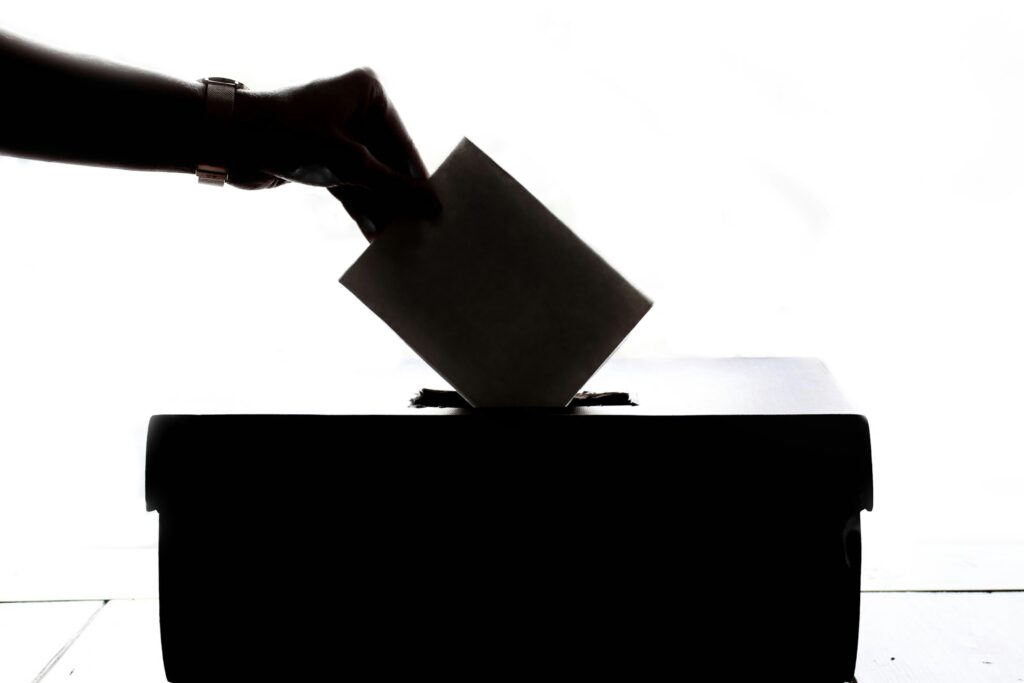
And the races continue: Super Tuesday and the presidential primary
Photo courtesy of Element5 Digital on Unsplash
C.J. Eldridge, News and Features Editor
As Super Tuesday closes in on March 5, the Republican and Democrat primaries are heating up. But what is Super Tuesday, and where do the candidates stand now?
Super Tuesday is an important day for the U.S. presidential elections. Fifteen states’ primaries fall on this day. There are 2,429 Republican delegates and 4,750 Democrat delegates to be won in total. On this day, 854 delegates will be up for grabs for Republicans and 1,420 for Democrats.
These delegates will go on to each party’s respective convention and then nominate the candidate for the general election based upon the people’s vote.
The states having both Republican and Democrat primaries on this day are Alabama, Arkansas, California, Colorado, Maine, Massachusetts, Minnesota, North Carolina, Oklahoma, Tennessee, Texas, Vermont and Virginia. Utah’s Democratic primary is on this day as well.
But we can’t forget the caucuses as well. The American Samoa and Iowa Democratic caucuses and the Republican Alaska and Utah caucuses are also going on.
NGU political science professor Nicholas Higgins said all of these states having primaries on the same day, thus creating Super Tuesday, is because states are in competition for who has the first primary.
“Because of this, numerous states keep moving the dates of their primary earlier and earlier, but political parties have so far protected Iowa, New Hampshire and South Carolina as being the earliest states. They do this by punishing other states by removing delegates if they move it too soon,” he said.
He explained that the incentive for state parties to have their state be first is having the appearance of control over whoever comes out on top during the first primary.
“Winning the first state can set up the momentum of a candidate,” Higgins said.
On the Republican side of things, the race is down to two candidates, with former President Donald J. Trump at 244 delegates currently outpacing former South Carolina Governor Nikki Hailey with her 43.
Nevada had both a primary and a caucus. Trump, receiving 99% of the votes, participated in the GOP’s caucuses while Hailey opted to participate in the state primary, receiving 30% of the votes. 63% of voters chose “none of these candidates” when selecting for president during the primary.
Next was the Virgin Islands caucuses. Trump won 74.2% of the vote, and Hailey won 25.8%.
Our state of South Carolina’s primary was further into February, with Trump getting 59.8% of the vote and Hailey getting 39.5%. Ron DeSantis with 0.4% of the vote and Vivek Ramaswamy with 0.1% were still available to pick on the ballot even though they’d dropped out prior to the primary.
Moving to February 27 for the primary and March 2 for the caucuses, it was Michigan’s turn to pick who they wanted to represent the GOP in the general election. Trump claimed 68.1% of the votes, and Hailey claimed 26.6%. However, 3% of voters chose “uncommitted.”
Idaho and Missouri also voted on the 2nd. Trump won 84.9% of the vote in Idaho, and Hailey won 13.2%. Missouri works a little differently, showing the amount of state delegates a candidate has won as the tabulation results. Trump won all 924 state-level delegates.
On the Democrat side, President Joe Biden with 206 delegates finds himself far ahead of the competition against Dean Phillips and Marianne Williamson. Williamson had originally dropped out of the primary but then rejoined after winning 3% of the vote in Michigan.
South Carolina was the first state to vote in the Democratic primaries. Biden got 96.2% of the vote here, Williamson got 2.1% and Phillips got 1.7%.
A few days later in Nevada, Biden received 89.3% of the vote, Williamson got 3.1% and “none of these candidates” received 5.5%.
The latest Democratic primary took place in Michigan. Biden won 81.2% of the vote, Williamson won 3% and “uncommitted” received 13.2%.
The nation’s capital also votes in the primaries. The Republican results for the District of Columbia were 62.8% for Hailey, 33.3% for Trump, 1.9% for DeSantis and 0.9% for Chris Christie.
Independent and third-party candidates are also running for the Oval Office. Robert F. Kennedy is continuing his presidential bid as an independent, Cornel West is also running unaffiliated and Jill Stein is running as a part of the Green Party.
